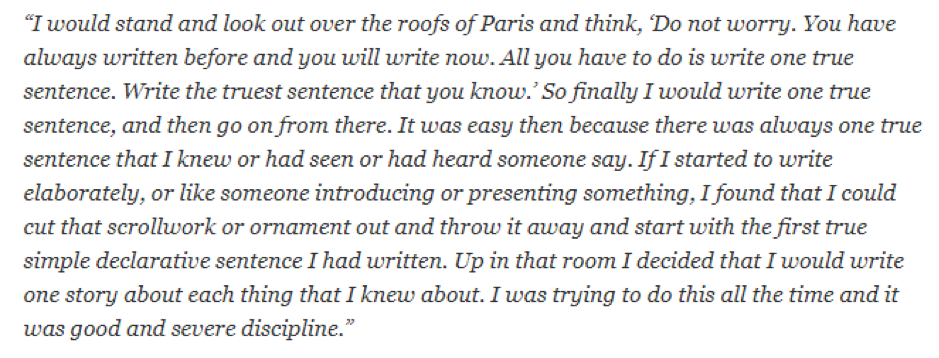It’s a tale as old as time: the writer who can’t quite make ends meet. But in the age of the internet, no writer need fall prey to financial woes….
The incredible vastness of the internet demands a huge amount of content to fill it — from social media, to YouTube — all corners of the web require content. The good news for you as a writer is that a large portion of content comes in the shape of blogs, articles and other forms of the written word. (And even video and social media rely on captions and scripts to convey their messages).

In fact, there are 350 million blogs on Tumblr alone, and if you think that means there’s no room for more, you’ll be happy to hear that you’re wrong! Many people rank content writing and editing as the most sought-after skills in freelancers.
So, don’t give up hope: where there’s a world wide web, there’s a way (and copywriters needed to fill it!). Here are 8 steps for boosting your income as a (soon-to-be-ex) struggling writer.
1. Take Your Fate Into Your Own Hands & Start a Blog
It’s one thing to say you can write, it’s another thing entirely to be able to show that you can.
More than just showing your ability, you need to show your dedication — freelance writers will often produce thousands of words a day, and you need to prove that you’re up to the job.
The good news is you can get started on this all on your own; if you don’t already have one, starting a blog is a great way to show both your writing style and your determination to pursue writing. It’s easy and simple to set up a simple blog: it costs next-to nothing to do, and you won’t have to work that hard to fill it up with some convincing content.
While you can write a blog on almost any topic under the sun (believe me, it’ll be hard to find an area that hasn’t been covered before…) it’s worth putting some thought into what kind of freelance writing you’re looking for.
Doing at least a few blog posts in your chosen area will serve you well when sending across examples of your work. Blogging about your niche will help crystallize your freelance writing value proposition.
2. Seek Out Oportunities
They might say good things come to those who wait, but in our fast-paced modern world, it’s far better to reach out and grab what you want. So, at the risk of sounding like a motivational speaker, you get out what you put in.
Looking for writing opportunities online can seem overwhelming, but it’s really about knowing where to start. A great point for beginners is to create your own writer’s bio – this gives you something to share in emails when reaching out to contribute to publications or organizations.
Being organized is a freelancer’s best friend: fill a spreadsheet with a list of places to apply to, then keep track of where you’ve submitted work and your application status.
It’s also worth remembering that rejection is a natural part of being a freelancer: persevering is the best way to ensure you make it. After all, it only takes one little break to get your foot in the door and get the whole freelance process up and running again.
3. Put Your Business Hat On
Another thing worth bearing in mind is that being a writer doesn’t mean limiting yourself to just blogs — while being a copywriter in 2018 might not be exactly the same as what you’ve seen in Mad Men, it definitely gives you lots of scope.
With ecommerce currently booming, there isn’t a shortage of products that need describing. A few minutes of searching brings back thousands of ecommerce brands, and it’s obvious that there is serious money in the industry – browsing through ecomm businesses on the market gives you an idea of the revenue some of these companies make. Ecommerce businesses are digital natives and the perfect clients — they get the value of content and don’t need a ‘hard sell’ approach. It’s a win-win situation when it comes to pitching for work.
So whether you want to sell your own products, or just write about them, ecommerce has the potential to be a big money spinner for struggling writers.
Start gearing your portfolio towards the ecommerce industry and show that you can tackle product pages, emails, landing pages, blogs, and optimization across a wide range of product niches. Pitch to small businesses and show value through your content marketing.
4. Start a Digital Portfolio
Even if you’re consistently blogging to demonstrate your writing ability, it won’t be enough with many prospective employers. They’ll want to see material directly indicative of a professional-level set of writing skills, encompassing various styles, tones, formats, purposes, and intended audiences.
With your blog doing a solid job of showing your consistency and interest in the industry, expand your online presence with a digital portfolio of your best work. It should be the resource for you to use whenever you have a brief chance to capture someone’s interest.
You can feature select blog posts if you’re particularly proud of them, but ideally you should provide a mix of content types (including old client work, most notably — if you’re bound by an NDA, then find a suitable workaround). If you have any further design skills — graphics design, for instance — then you can showcase them in the process of compiling and presenting the writing work.
As your career progresses, you should consistently add to your portfolio. This will demonstrate to those interested in your services that you put consistent effort into your work, and set you apart from more casual writers who rely on picking out samples upon request.
5. Effective Project Management
Writing is a creative profession. This can give the perception that it’s a case of waiting for inspiration to arrive. However, this is almost never the case – even for the best writers. Ernest Hemingway might have been a hell-raiser who was often drunk, but he was supremely disciplined:
Being more disciplined in your writing is one way you can boost your income. The way to do this is to cultivate effective project management. This covers both your individual projects and the overall project of your writing career (your collection of projects).
Using time management software is a great aid to effective project management. Toggl is prized by many companies and it’s a tool I’ve used successfully myself. However, there are cheaper, or free alternatives, so I recommend you review all your options before you commit to a tool.
You should also start using pure project management software. My personal preference is Asana, as this has a really simple layout that means you spend no time at all locating your projects. But again, do your research and decide what the best software will be for you.
Adopting this approach to your writing will enable you to complete work faster and also ensure that you are billing clients the right amount for you work. You may find that you are putting in more hours that you are being paid for — you will need to address that to improve your margins.
6. Charging Higher Rates
One of the simplest steps you can take to boost your income is also one of the most effective. Allie Freeland has claimed that there 15 scenarios when businesses should pay writers a higher rate. These all relate to occasions where the brief has developed and the work involved with delivering the brief have now expanded. Each and every scenario is an example of where you should charge a higher rate for your work.
But you shouldn’t wait for changes to your brief to push up the cost of your work. Take the initiative for your writing career and put up your base rates. The beauty is that every $ you add to your rates can boost your income by the same amount.
7. Specializing
Being able at everything but a master of nothing gives you a broad range of topics to write on. However, being a master of something adds value to your work. There are two primary reasons for this:
- You can complete your work more quickly
- You can charge more money
The knowledge of your specialist subject will cut down on the time that you need to research a topic. While writing more on a topic will improve your reputation, increase your credibility, and position you towards becoming a thought leader in your subject.
This result of this is that you can charge more money for work that takes you less time to complete.
What it also means is that you can scale up the size of the projects you work on and companies you work for. True specialists are in high demand and as you become ever more experienced, the number of writers operating at your level will shrink.
Though this step may take more time than others it can provide a real long-term boost to your income.
8. Joining Up the Dots
The last step is pretty simple really, and it’s just about bringing it all together. Whether you use a super polished LinkedIn profile, or create your own website, you should have a page somewhere which features a detailed summary of your experience and achievements.
Plus, it never hurts to get listed in local creative directories, setting up a profile may well put you on the map locally, meaning even more work will find its way to you without too much effort on your part.
The ultimate goal will always be to be so in demand that opportunities find you, but as ever, never be disheartened and know that every task or brief brings you one step closer.
Use these 8 steps to become a fruitful freelance writer with plentiful experience, a wide and varied career, and – most importantly of all – more than enough money to keep doing what you love. Determination, hard work and a business savvy outlook will ensure that “struggling to make ends meet” is a thing of the past.




Leave a Reply